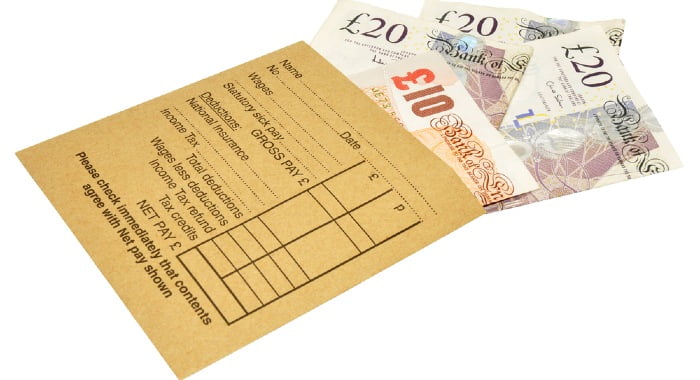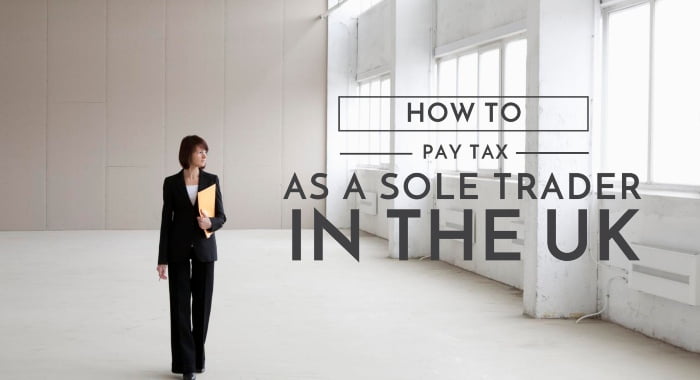Being a sole trader brings several benefits, including complete flexibility and control to run your own business, exactly as you want it.
It’s not surprising then that more than 50% of businesses in the UK private sector are sole traders. We’ve banged the drum of why being a sole trader can advantage you many times before.
There is one caveat to this, though. As a sole trader, you are responsible for calculating and paying your own tax and national insurance. This isn’t automatically deducted from your salary because you’re not employed (unless you’re working two jobs!). This one is on you.
But don’t worry, learning how to pay tax as a sole trader isn’t as complicated and daunting as it might sound. To help you through it, we’ve put everything you need to pay tax as a sole trader in the UK right here.
Let’s get started!
Make sure you’re correctly registered
Before we get into the nitty-gritty tax details, you need to ensure that you’re correctly registered with the HMRC.
So if you haven’t already, you need to register as a sole trader and for Self Assessment. If you’re not sure if being a sole trader is the right choice, check out this guide on different company structures to find the right one for you.
Registering as a sole trader isn’t just essential for submitting your taxes. Still, it’s also required if you:
- Have earned more than £1,000 from self-employment in the tax year;
- Must prove you’re self-employed, for example, to claim Tax-Free Childcare:
- Make voluntary Class 2 National Insurance payments in order to help qualify for benefits.
It’s possible to register as a sole trader while you are still employed – so for those that are setting their business up on the side, you’ll still need to abide by the above rules. To help you out, we’ve also got a guide on how to start a business while still employed.
What tax does a sole trader pay?
As a sole trader, you will be liable to pay income tax on your profits, as well as Class 2 and 4 National Insurance.
You’ll also be responsible for:
- Keeping accurate records of your businesses sales and expenses;
- Submitting a Self Assessment tax return every year;
- Paying VAT, if you’re VAT registered.
If you work in the construction industry as a contractor or subcontractor, you need to register with the HMCR for the Construction Industry Scheme (CIS).
You can find out more about the legal obligations of a sole trader here.
How much income tax does a sole trader pay?
Knowing how to pay tax as a sole trader in the UK means that you know that your income tax is calculated based on your annual profits and split into different bands depending on what you have earned.
As a sole trader, you are allowed up to £12,570 tax-free as a personal allowance. So if your profits fall under this amount, you won’t be liable for any tax.
If your business earned more than that in profits, you would fit onto one of the following tax bands, based on the tax year 2021/22.
| Earnings | Tax Band |
| £12,571-£50,270 | Basic Income Tax rate at 20% |
| £50,271-£150,000 | Higher Income Tax rate at 40% |
| £150,000+ | Additional Income Tax rate at 45% |
So for example, let’s say that you earnt £30,000 in profits. The first £12,570 you earn is tax-free, so you’re only paying tax on the remaining £17,430. As the total is less than £50,270, you’ll be in the Basic Income Tax bracket at 20%.
A 20% tax rate on the remaining £17,430 is £3,486. That’s the amount you will need to pay back in taxes.
This amount will be calculated and paid on your self-assessment tax returns, which details your total profit and income from all sources. So, good bookkeeping is a must here.
Top-Rated Accounting Software:
| Accounting Software | Cheapest Package | Ease Of Use | Our Rating | Review | Official Site |
|---|---|---|---|---|---|
 | £19/mo | Excellent | 9.4 | Read Review | Visit Website |
 | FREE | Outstanding | 9.3 | Read Review | Visit Website |
 | £12/mo | Excellent | 9.3 | Read Review | Visit Website |
Do sole traders get allowable expenses?
Yes, a sole trader is allowed to claim for any expenses to help run your business, provided that they are ‘wholly and exclusively for your business. That means that if you run your business from your home, or take calls on your normal phone, you can’t expense these.
To make sure that you’re always getting the best deal for your business, we’ve put together this guide on what expenses can a sole trader claim and how you can start your claim today. Let’s get started.
Some things you could claim for as a sole trader include:
- Marketing and advertising;
- Materials or stock;
- Phone or internet bills;
- Rent for premises;
- Utility bills;
- Travel expenses, business vehicle and fuel.
Any expense that you make offsets the amount of Income Tax that you’re eligible for. So, in the above example, the sole trader was eligible for £3,486 in Income Tax after making £30,000 in profits.
However, they can claim £1,000 in business expenses for travel, bringing that overall bill down to £2,486 instead.
If you’re ever unsure about what you can or can’t claim, make sure you speak to your accountant.
How much National Insurance does a sole trader pay?

As a sole trader, you will be eligible for two types of National Insurance contributions.
- Class 2 contributions are a fixed rate charge of £3.05 per week for any business that makes over £6,515 per annum.
- Class 4 contributions are a 9% rate on any profits between £9,569 and £50,270, or 2% on profits over £50,270.
So bringing back the previous example of a sole trader that earns £30,000 in a financial year. As well as being eligible for £3,486 in Income tax, they’ll also have a flat charge of £158.60 for the year.
In addition, they’ll also have a 9% Class 4 NIC contribution as they earn between £9,569 and £50,270. At £30,000, this contribution equates to £2,700.
Tax breakdown for a sole trader earning £30,000 (with no exemptions).
| Annual profits | £30,000 |
| Income Tax | £3,486 |
| Class 2 National Insurance | £158.60 |
| Class 4 National Insurance | £2,700 |
| Total deductions | £6,344.60 |
| Take home profits | £23,655.40 |
There are some exemptions to National Insurance. For example, if you earn less than the minimum amounts listed above, you won’t be liable to pay. Similarly, if you’re aged under 16 (a young entrepreneur!) you will also be exempt.
Lost the buzz for your business?
Starting a business is exciting. Succeeding is rewarding. The bit between is hard, repetitive, and full of self-doubt.
The Lonely Middle Club (From Business4Beginners) helps you through it:
Get support and advice from other small business owners
Remove the self-doubt that’s holding your business back
Learn techniques and strategies to grow your business faster
Be inspired with our exclusive ‘swipe’ file and AI-powered tools
No pressure – work at YOUR pace, towards YOUR goals
—
Do sole traders need to pay VAT?
You’ll only be eligible for VAT if you are VAT registered. For most sole traders, registering for VAT won’t be necessary unless you qualify for all of the following points:
- You are actively selling goods or services that are not exempt from VAT;
- You live in, or your business is based in, the UK;
- You have an annual turnover of more than £85,000.
As you can see, that’s not really the average annual turnover of a sole trader. However, you can choose to register for VAT voluntarily, which might be beneficial to some businesses. Find out everything you need to know about VAT in our VAT explained for dummies guide here.
Do sole traders pay corporation tax?
No, a sole trader does not need to pay corporation tax. This tax only applies to limited companies,
Every limited company in the UK will be subject to corporation tax. Businesses that operate as sole traders (or partnerships) are not required to pay corporation tax.
Which Accounting Software Is Right For You?
Answer 5 multiple choice questions to get a personal recommendation:
How is a sole trader taxed?
Sole traders are taxed through their self-assessment returns. This is completed every single year, before the deadline of 31st January. As part of the Making Tax Digital initiative, most self-assessment returns will be usually completed online through the Government Gateway.
To access this, you’ll need your Unique Tax Reference (UTR) and password. If this is the first time completing your self-assessment, you’ll also need an activation code which will be supplied via post to your business address. This means you need to give yourself plenty of time to register before the 31st January deadline if you want to avoid any late fees or charges.
Once you have completed all pages of your self-assessment form online, you will receive a confirmation of how much Income Tax and National Insurance you are eligible for. You’ll also be able to check this on your online account once the return has been processed (it can take up to 72 hours to show).
To pay your tax, you can:
- Transfer the balance using your online bank account or in-branch using a paying-in slip from the HMRC;
- Pay via debit card or corporate credit card (payment by personal credit card is not allowed);
- Pay via CHAPS;
- Pay via telephone banking;
- Use an existing Direct Debit that has previously been set up with HMCR (be aware, direct debits can take up to 5 days to process, so make sure you avoid any late fines by paying this early);
- Via cheque in the post (which also needs time to clear!).
Payment via the Post Office is no longer an option.
If the payment deadline falls on a weekend or public holiday, the funds must be cleared by the last working day before. Failure to pay on time could result in hefty fines.
If you’re struggling to make payments, you may be able to arrange to pay in instalments with the HMCR.
What do I need to complete my self-assessment tax return?

To submit and complete your self-assessment tax return, you will need:
- Your Unique Tax Reference (UTR).
- Your Government Gateway password.
- Your activation code (if this is your first return).
- Detailed records of your finances.
The first three on this list are relatively easy to come across. But keeping a detailed and accurate record of all your finances as a sole trader can seem like a daunting and tricky task.
It doesn’t have to be, though. The secret that sole traders need to understand is that bookkeeping isn’t something only accounting experts can complete. With accountancy software, any business can keep easy and accurate records of their finances with a few simple clicks.
All it takes is some great accountancy software. Now, finding the right solution for you may seem like a lot of hard work. So, we’ve done the research for you.
Find the best accounting software for sole traders in the UK here.
Each software has been rated based on its price, ease of use and features available. Using one of these programs will make bookkeeping easy and ensure that your self-assessment tax returns go without a hitch.
Need more tax help?
Now that you have a much stronger idea of how to pay tax as a sole trader in the UK, there might be some points you still need further information. Whether you’re looking for:
- The best accounting software to keep your books in order;
- Infomation and advice on how to fill out your taxes – and the reliefs you might be eligible for;
- A reliable accountant that you can trust to help you out.
We’ve got you covered. Always.
Top-Rated Online Accountants:
| Accounting Software | Cheapest Package | Value For Money | Our Rating | Review | Official Site |
|---|---|---|---|---|---|
 | £24.50/mo | Excellent | 9.4 | Read Review | Visit Website |
 | £42/mo | Good | 9.3 | Read Review | Visit Website |
 | Variable | Good | 9.1 | Read Review | Visit Website |






